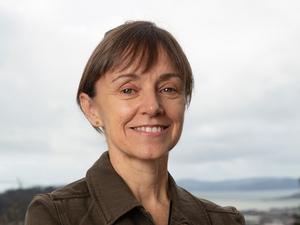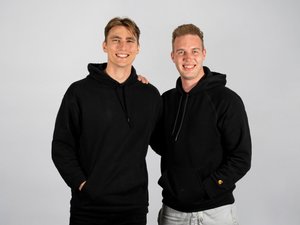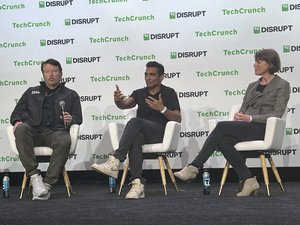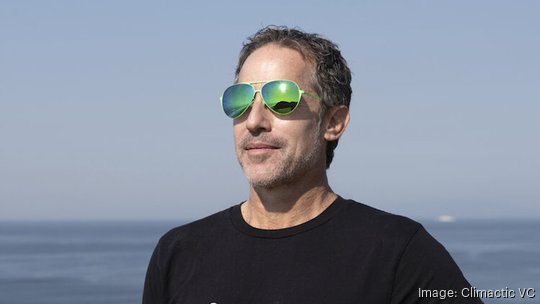
A new climate tech venture firm founded by longtime Silicon Valley entrepreneurs has millions in new funding from some notable limited partners and is revving up to make some early bets at the intersection of climate tech and artificial intelligence.
Raj Kapoor and Josh Felser founded Climactic VC in 2021 after spending years as entrepreneurs themselves going as far back as the late 1990s.
Kapoor founded Snapfish and Fitmob, and Felser founded Spinner.com and Crackle. All four of those companies had successful exits. Felser also then founded an early-stage venture firm called Freestyle.
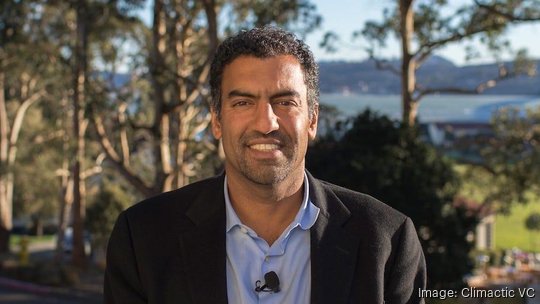
Then in 2020, they decided to go in on some angel investing together and the following year launched Climactic.
Last week, Climactic announced that it had raised $65 million for its first fund, backed by several notable limited partners including Reid Hoffman, Chris Sacca, Ev Williams, Mike Schroepfer, Chris Larsen, Alison Pincus, Mark Pincus, Stephen Simon, Jeff Clavier, Stepstone, MIO Partners, NfX, Foundry Group and Mayfield.
CNN political commentator Van Jones will also be a "strategic advisor" at the firm on issues related to government, policy and climate justice. Author and environmental activist Paul Hawken will be a "strategic partner" at the firm, as well.
I spoke with Kapoor and Felser about why they think now is a good time to invest in climate software, what role AI can play a role in accelerating the world's efforts towards achieving net-zero emissions and what makes the Inflation Reduction Act a game changer for climate tech startups.
What’s different about this new era of climate investing versus one or two decades ago? And are you focusing on specific verticals within climate?
Kapoor: When we analyzed what are the ways to get really a net-zero planet, which is the impact part of what we do, there's consumers, there's government policy change, and there's businesses. Even though we love consumer, and both of us have had success in it, it's not going to get us there alone. There's some level that it'll get us but not much, especially recycling, things like that. When we looked at government policy, especially right now, Josh and I are both active in politics, too. We don't have a great forecast for 2024 on putting a price on carbon, which is the simple thing that I think needs to happen, but in addition to maybe even rolling back what we just did on the IRA, all the scary stuff that can happen. So, we can't count on governments.
Clean Tech in 2007, 2008 was about the energy industry and new materials. If you look at the top 50 companies, these are the largest companies in the world, probably 80% to 90% of their emissions comes from their supply chain. If we can get them in their supply chain to net zero, which means that the consumer that's consuming the product will have a net zero consumption, that's the biggest lever. The biggest lever is not going to happen at COP28. What they did talk about the first couple of days was AI, which is where our focus is.
Eight years ago, it was capital intensive science projects. Now, every industry needs to be harmonized, and the best way you get there first is through software. It’s efficiency and software. It's AI, which can hyperaccelerate by adding data and doing predictions and complex system analysis, which is hard for humans to do.
Felser: Paul Hawken, who is usually an optimist, I've never seen him this concerned before, and he's seen a lot. We know that the planet needs a Hail Mary, and there are very few areas that are playing out right now. Fusion is still a ways off. Superconductors, that's obviously not happening right now. We do think that AI has potential to dramatically accelerate all of our efforts to really keep the planet below that two degree threshold of increase.
Obviously, this has been the year of AI. So what are you looking at specifically through the lens of AI?
Kapoor: AI is really a subset of machine learning which has been around for a long time. And I think the excitement in the last year is really around large language models, which is only one element of AI. Now, the other piece of AI, which is just around machine learning, has also been rapidly expanding and is much cheaper than it was before. For us to get to net zero, we need to first make the entire enterprise industry more efficient. And what AI can do is fill in data gaps. We need to measure first so that we know what to make more efficient. Our focus is around the double whammy of efficiency for the business and reduction in emissions.
Felser: Anytime there is a logistical challenge to make the flow more efficient, AI is going to rear its head. Especially on energy efficiency, in the smart grid. We're excited about the how AI will help factories become more efficient, especially with energy, but also how they ship their goods from A to B. AI is going to have a dramatic impact on farming, predictive and precision farming. Being able to predict demand and forecasts for farming. One of our portfolio companies in space is using AI to do things with satellite data that no one's ever done before.
How much of an impact does the IRA have on this bubbling up of interest in climate investing?
Kapoor: Before, it was like: We need a subsidy to make a business model work. Now, it's nondilutive financing in the form of either tax credits or grants to companies so that they can get over the hump. And that could turbocharge, effectively, the capital that we give them.
Felser: One of our portfolio companies applied for a $10 million grant through the IRA to help them build out their platform. Even if they get half of that, it's dramatic. They are a pre-seed company, so $5 million, nondilutive, would be amazing for the company and for us as investors. We're excited about that.
Is there anything else you’d like people to know?
Kapoor: We think that decarbonization is the next big thing. And that's why we're into it. But it takes specialization and is challenging because it's bits and atoms. We feel like 2024 is going to be a really interesting year. Funds are starting to be formed like ours and others through raising significant amounts of capital. Entrepreneurs are out of the woodwork, and the best ones are coming out because in tough times that's when you get the best companies. We're super excited about the next year.
